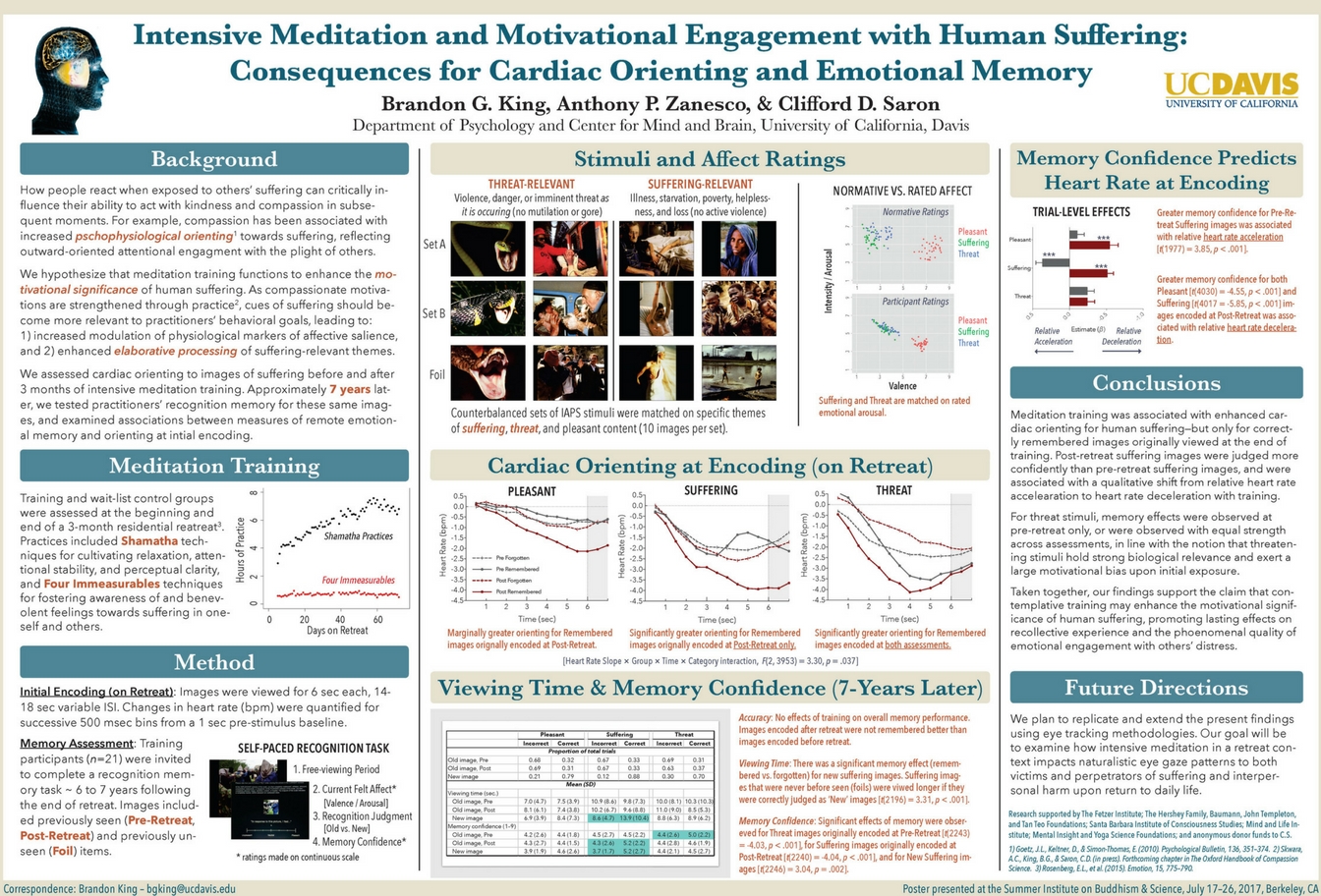Brandon King, Graduate Student, University of California, Davis
Recent years have seen a rise in research emphasizing compassion and altruism as salient outcomes of meditation training. While fruitful, this literature has yet to consider the broader implications of contemplative training for how individuals encode and derive meaning from observed human suffering. In a longitudinal study, participants viewed images of suffering before and after 3-months of training in a residential shamatha retreat. Physiological measures of cardiac orienting (heart rate) were recorded to assess attentional engagement and prosocially-oriented motivation. Approximately 7 years after retreat, participants completed a recognition memory test for these images. Although training did not influence overall levels of memory accuracy, reported confidence for correctly-remembered images was strongly associated with outward-oriented concern (cardiac deceleration) after training, but relative self-focused attention(cardiac acceleration) before training. These data provide initial evidence that intensive meditation promotes a qualitative shift in how human suffering is encoded and maintained in lasting memory.
